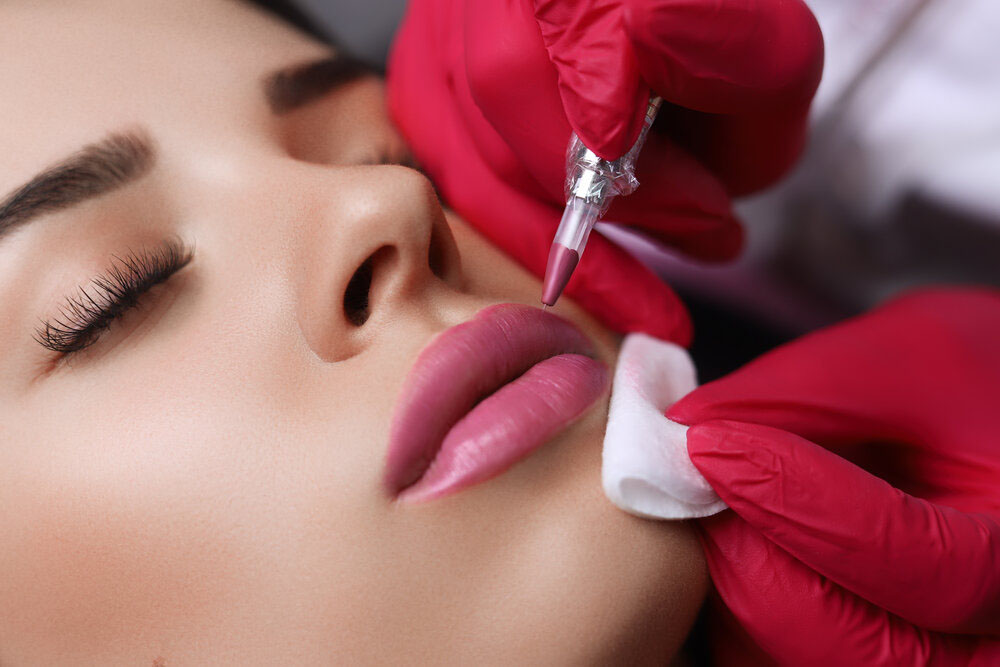
lip blush aftercare
Following the lip blush aftercare routine is essential for getting the best possible results, and staying healthy. As your skin heals from the trauma caused by the tattooing, it needs some special care.
DAY 1
- Immediately following the procedure, lips will feel dry, chapped, tight and tender to the touch. They may appear swollen and bright in color.
- Refrain from eating for a few hours. Drink through a straw.
- For 4 hours after treatment, apply light pressure on lips with a clean paper towel, to remove any lymph. After 4 hours, start applying ointment (Aquaphor) as needed to keep lips constantly moist.
- No kissing, rubbing or friction on treatment area.
DAY 1-3
- Apply ointment on lips several times a day. Keep lips moist at all times. Avoid oily, spicy and heavily seasoned food and drink with a straw. After every meal gently rinse and clean lips with water and pat dry, then re-apply ointment.
DAY 4-7
- Between these days, lips will begin and end the process of peeling, and color will lighten by 30%-50%. Do not pick or rub your lips and let the peeling happen naturally. Continue keeping your lips moist!
WEEK 2
- Lips are done peeling, color is light. You may return to normal routines. Lips will continue to heal, up to 6 weeks. Every week more color will surface, it is important to continue keeping lips moist to get the best color at the end of the healing phase.
WEEK 6-8
- Your lips are healed and you're feeling unstoppable!!! Just add some lip gloss and go! In most cases it requires two treatments to complete the lip transformation.
Avoid for up to 14 days after treatment:
- Increased sweating
- Practicing sports
- Swimming
- Hot sauna, hot bath, or Jacuzzi
- Sun tanning or salon tanning
- Exposure to UV/UVA Rays or chemicals as they have been known to cause a shift in color and premature fading
- Any laser or chemical treatments or peelings, and/or any creams containing Retin-A or Glycolic acid on the treatment area
- Picking, peeling, or scratching of the micro pigmented area in order to avoid scarring of the area or removal of the pigment
- Performing tasks related to heavy household cleaning such as garage or basement cleaning where there is a lot of airborne debris
- Drinking alcohol in excess, as it may lead to slow healing of wounds
- Driving in open air vehicles such as convertibles, boats, bicycles, or motorcycles
Contact a physician if any signs or symptoms develop such as the following: fever, redness at the site, swelling, tenderness of the procedure site, elevated body temperature, red streaks going from the procedure site towards the heart, and/or any green/yellow discharge that is foul in odor.